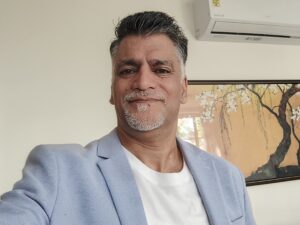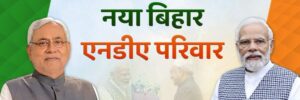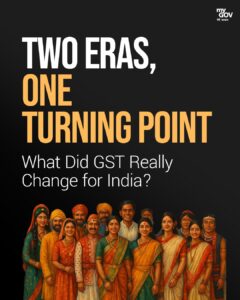Whispers of the Vanished Woods
 How Kashmir’s Forests Fell to Greed and Silence.
How Kashmir’s Forests Fell to Greed and Silence.
By Dr Noour Ali Zehgeer
The earlier parts of this series peeled away the layers of Kashmir’s land crisis — the reckless ownership drives under the Roshni Act, the quiet theft of Pandit homes during the dark 1990s, and the abandoned fields left in bureaucratic limbo since Partition. But perhaps nothing wounds deeper than the story of the forests — those sacred green lungs that once wrapped the Valley in life, shelter, and serenity.
Once, Kashmir’s woods were more than trees. They were guardians of rivers, homes to animals, shields against hunger and flood. The revered saint-poet Sheikh-ul-Alam had warned centuries ago, “Ann poshi teli yeli wan poshi” — food lasts only as long as forests last. Today, those words echo like a lament over bare hillsides and dried riverbeds.
When the fires of militancy swept across Kashmir in the early 1990s, governance vanished overnight. The forest guards disappeared, offices were torched, and the rule of law dissolved into fear. At first, the loss seemed harmless — villagers cutting a few trees for firewood or clearing small patches to grow crops. But as chaos deepened, greed found its chance. Armed men, traders, and desperate villagers together turned the forests into open loot.
By night, gunshots were followed by the rumble of trucks. Deodar and pine, the Valley’s prized giants, were felled and shipped away — some to city markets, others to military camps. Even the forces, it was whispered, took their share. “Everyone had their reason,” says a retired forest guard from Budgam. “For some, it was survival; for others, power.”
Between 1990 and 2010, over five lakh mature trees vanished from Budgam’s Sitharan range alone. Across Kashmir, satellite data shows the Valley losing more than 152 square kilometres of forest cover since 1989. The wounds of that loss still bleed — in swollen rivers, eroded hills, and the choking air that once carried the scent of pine. During 1990 to 2008, the natural resource of this valley was looted, the insensitive businessman of the valley grabbed every commercially viable land to create fortunes for there family. The politicians were alibi to their crimes yet silent and waiting for their shares rather than legally stopping them. So called these Pakistan sponsored militants were part of parcel of this loot which made Valley a barren land, they also made fortunes without caring for our generations to come.
If Trees don’t return to Kashmir, in Next 20yrs we will see our children suffering and making their future dark
From Kral Sangri to Kupwara, the story repeats itself — quiet villages turned into settlements of stumps and stones. “We thought we were taking what was ours,” recalls an elderly villager, staring at the concrete where oak trees once stood. “But we took away our children’s shade.”
When democracy returned in 1996, the damage was already deep. The Public Safety Act (PSA) — once meant to deal with threats to peace — was extended to forest smugglers. Yet the powerful remained untouched. Timber mafias became donors, and politics turned green crime into patronage. “Forests paid for elections,” a former officer remark bitterly.
As of September 2025, official data reveals 19,501 hectares of forest land — nearly 3.9 lakh kanals — encroached across Jammu and Kashmir. Of this, 5,891 hectares lie in Kashmir alone, with the South Circle (Anantnag to Awantipora) worst affected. The pattern is unmistakable: illegal felling under the shadow of development, silence under the pretext of progress.
The 1990s saw timber smuggling evolve into an organized industry. Militants levied “forest taxes,” and smugglers, protected by fear or favour, stripped the woods bare. In places like Tosamaidan, leased to the army in 1964, lakhs of deodars disappeared under the cover of military activity. “We cut to survive,” admits Javed Ahmad, a former smuggler from Budgam. “The militants took their share, and the rest went unseen.”
By the early 2000s, over 84,000 kanals had already been seized. Today, that number has tripled. The victims aren’t just trees — they are people too. From Kupwara’s nomadic Gujjars, who now wander parched pastures, to widows in Kral Sangri who lost homes to the 2014 floods, everyone has paid the price. The Jhelum, once a calm vein of the Valley, now clogs with mud from naked hillsides.
The environmental toll is immense. Studies show a 2°C rise in average night temperatures since 1990 and a steady increase in flash floods and landslides. The Hangul deer — Kashmir’s pride — teeters on the edge of extinction. Medicinal herbs once common in Verinag or Doda now exist only in memories.
Though efforts to reclaim encroached land have begun — with 14.28 lakh kanals retrieved out of 17.22 lakh — the pace is painfully slow. The Forest Protection Force, armed and alert, clears only a few hundred hectares a year. Technology has entered the fight: satellite monitoring, tip-off apps, and drone surveys. But against entrenched corruption and political apathy, such steps barely scratch the surface.
Ironically, even institutions meant to protect are part of the problem. Camps, government offices, and even tourist resorts have been built on forest land. In Dachigam National Park, a proposed CRPF camp threatens to erase habitats of the endangered Hangul. Each new construction is defended as “national interest,” yet each leaf behind another scar.
What’s needed now is courage — and honesty. Kashmir must publish the names of the encroachers, prosecute the powerful, and protect the weak who cut only to live. Forest-dependent communities should be partners, not targets. Projects like REDD+, which reward conservation, could offer new hope if implemented sincerely. Climate change is reshaping Kashmir’s ecology, economy, and daily life—triggering erratic weather, shrinking water bodies, and threatening traditional livelihoods like saffron farming. What the UT government should do is Train youth in climate literacy, disaster response, and green entrepreneurship. Co-create tech-enabled solutions for crop resilience, soil monitoring, and market access. Empower youth to draft climate adaptation policies and engage with local governance bodies.
But in Kashmir, votes still weigh heavier than virtue. Parties trade slogans over bulldozers, yet none speak of the 19,000 hectares already lost. “We took from nature,” says an ex-smuggler now turned forest guide in Tosa maidan, “and she is taking back from us.”
The civil society has also done very little for awareness of not cutting down trees, they are tight lipped like corporate houses of Jammu and Kashmir who could have done a lot under CSR programs. Irony is Kashmiri people themselves are responsible for this mess ,and no one can deny that locals have looted the forest reserves and put generations to come in climate change danger.
The message is clear — if the trees do not return, neither will life as we knew it. The winds that once carried the fragrance of cedar now whisper a warning: we are running out of green, and out of time.


 and Logic
and Logic